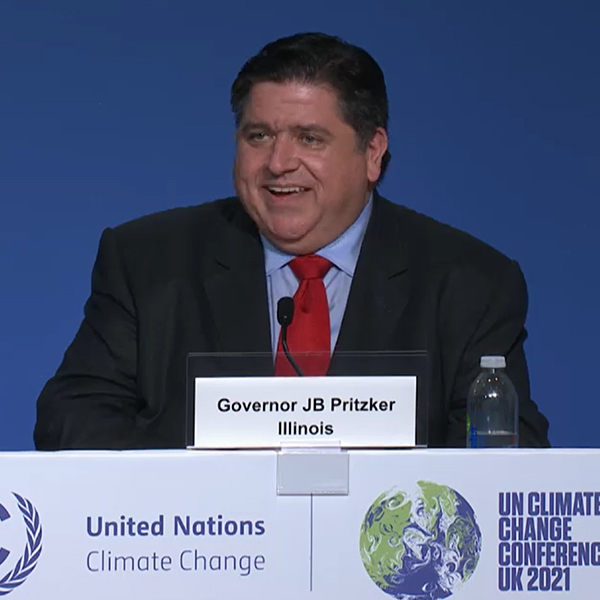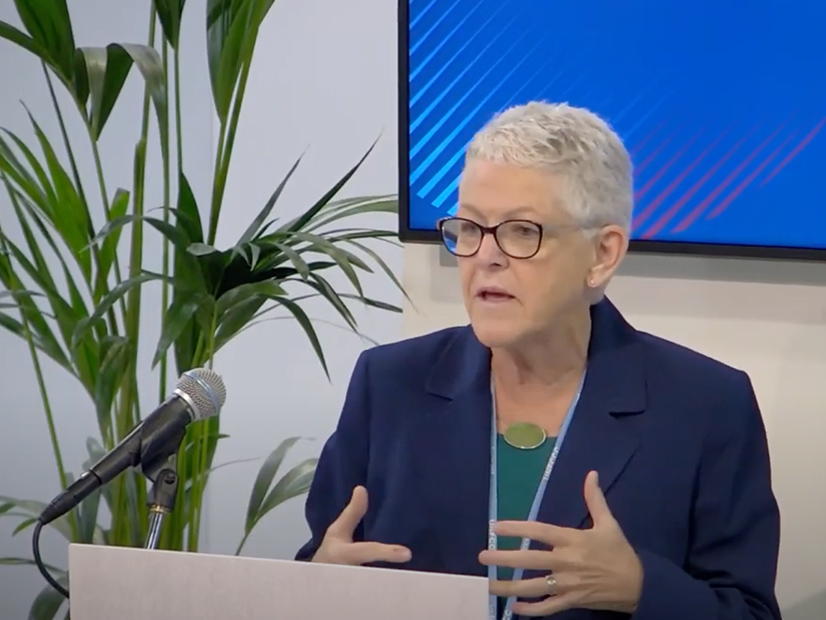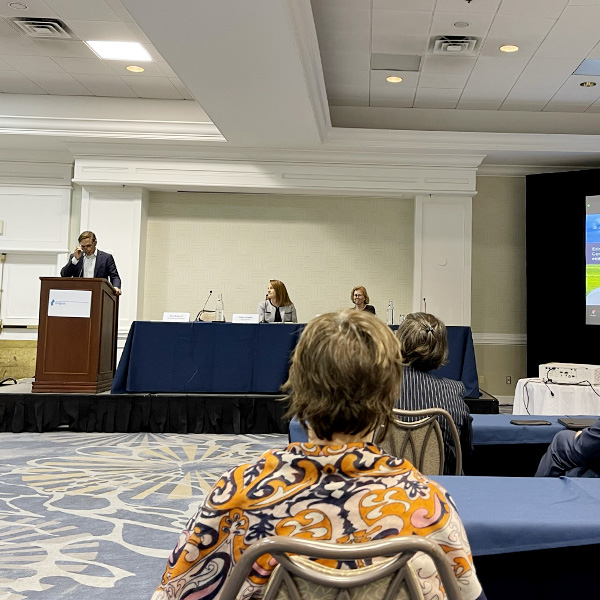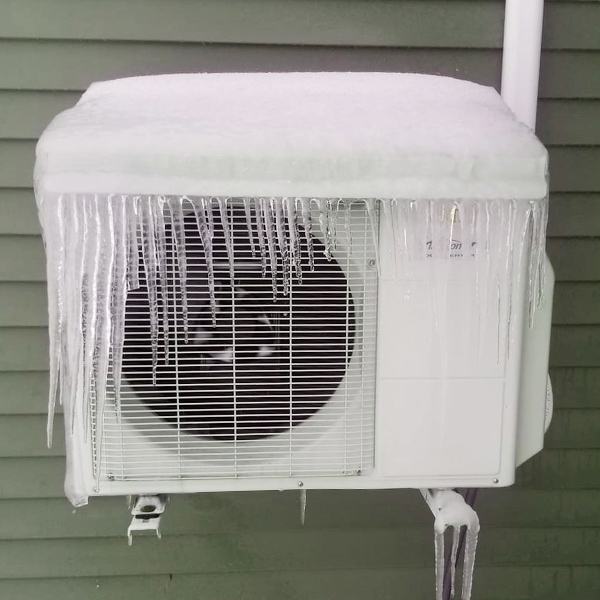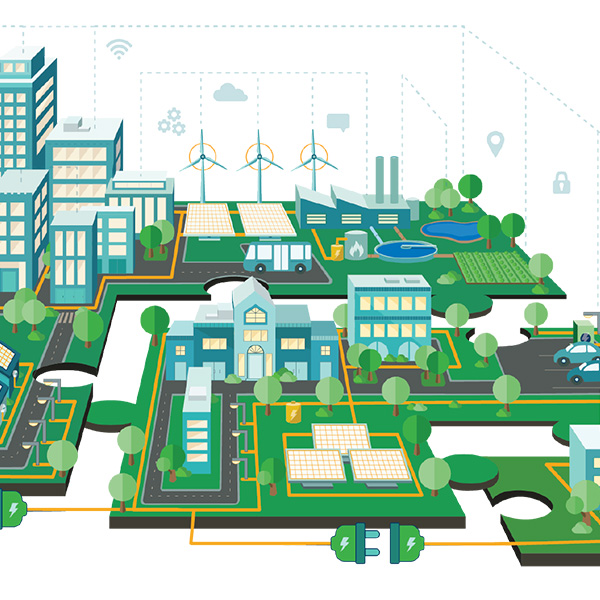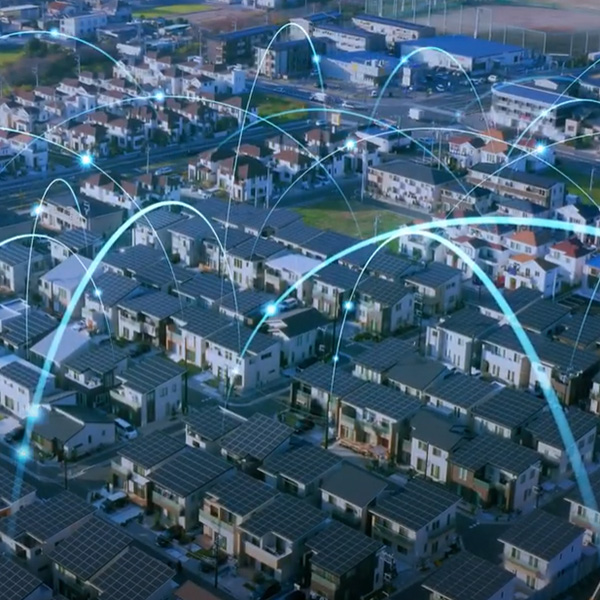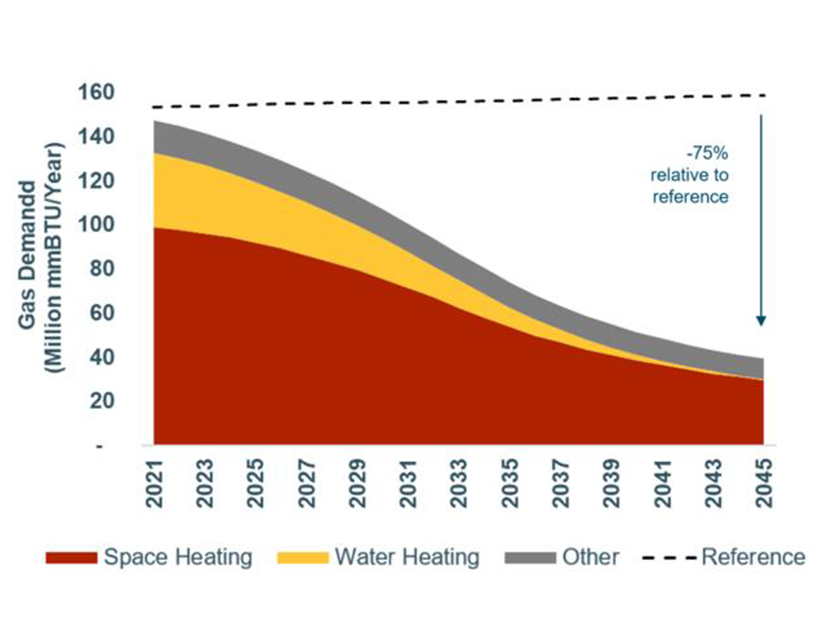Building Decarbonization
Hydrogen may become a key to decarbonization, but state utility regulators are discovering that they have few standardized tools to regulate it.
A trio of experts at NARUC's annual meeting presented various perspectives on reaching net-zero emissions.
States and provinces in the U.S. and other nations are leading efforts to address climate change while their national governments often lag.
U.S. National Climate Advisor Gina McCarthy, several U.S. utility executives and the Edison Electric Institute discussed President Biden's goals at COP26.
Seattle has opened the doors to what could be the country's first net-zero sports and entertainment complex: the Climate Pledge Arena.
Upgrading the gas pipeline network could prepare existing infrastructure to carry zero-carbon fuels, but it's an “enormous task,” researcher Erin Blanton said.
Maine surpassed 75,000 total heat pumps last year and installed 28,000 in 2020 alone, according to Michael Stoddard, executive director of Efficiency Maine.
Ann Arbor is considering creating of Michigan's first “sustainable energy utility” to drive energy efficiency, renewable power and microgrids.
PacifiCorp will receive $6.42 million in Department of Energy funding for a “connected communities” pilot project in Utah, one of 10 projects nationwide.
A Maryland Climate Change Commission working group recommends ordering the state's Building Code Administration to adopt an all-electric construction code.
Want more? Advanced Search


